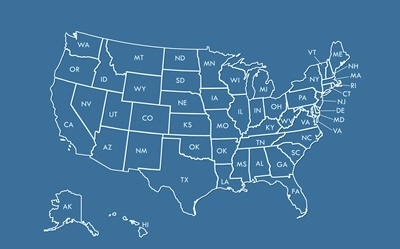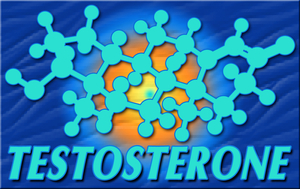Male Menopause and its effect on men's health.
The Andropause is the time in a man's life when the hormones naturally start decline usually during their late forties or early fifties. This decline continues into the eighties. Many have questioned whether the male menopause is more myth than reality. The Andropause is a gradual process and not exactly the same as menopause. However, like women undergoing menopause, the decline in hormones in men result in them suffering from symptoms of the Andropause. However, like the menopause, symptoms of Andropause can vary from person to person.
Between the ages of 50 to 70, some men report symptoms such as erectile dysfunction (failure to achieve an erection), general tiredness, mood changes, night sweats and sometimes palpitations. Most men attribute erectile dysfunction to be the most significant event of the Andropause. Apart from erectile dysfunction, mood changes can take place too. Some patients of mine have complained of nervousness, irritability and even depression. Other patients undergoing andropausal changes report the feelings of wanting to be closer to family and friends. Men often focus too intently on their career, money and power in their earlier life, often neglecting family and friends. In the andropausal years, men and take on a more "maternal" role, as if transitioning to become more motherly than fatherly. They become more concerned about their friends and family, as if regretting their former attitudes. It is interesting that many patients do not sense these changes in themselves, but rather it is women that notice this and tells me that he is undergoing "the menopause"!
In andropausal men, night sweats and palpitations occur because of an overactive autonomic system in response to falling testosterone levels. To assess for hypogonadism, which is in part the clinical basis of the Andropause, the doctor will check for physical signs in men including hair loss particularly in the armpit and genitalia. Psychological tests may be carried out to rule out depression and other mood and cognitive changes.
Psychological Challenges in the Andropause Throughout the life of a male there are several psychological issues that he struggles with, and these challenges are often amplified during the time of the Andropause: -
I have noticed that older men tend to be closer to their family and are more interested in domestic issues than when they were younger. It is as if the lack of testosterone makes them more "feminine". They take on more homely roles of cooking, cleaning and looking after children. More often than not, they devote much more time and attention to their grandchildren than they had previously to their own children when they were parents themselves. Perhaps it is because they have more time during the andropausal years as they have probably retired by then. They usually also have more disposable income, having saved most of their lives, and are more willing to enjoy little pleasures around them, stopping to smell the roses. Their emotions become less "fiery" and take on a gentler aspect, so in a sense, the decline of testosterone enhances domestication skills.
In the andropausal years the mind becomes less sharp and nimble. The older male becomes less swift in mental calculations and his judgment is not as accurate as before. Perhaps he used to make razor-sharp business deals, but now he makes blatant mistakes and incurs painful financial losses. Oftentimes, he attributes it to aging, but in truth it may be partly due to the decline of testosterone. In more severe cases, the memory gets impaired too, and with time, dementia may even set in.
Although once willing to take risks of all sorts, the andropausal man becomes more conservative and fears treading in unclear waters. They no longer participate in roller coasters and bungee jumping, but rather watch these on TV instead. Most loose courage to take on new ventures and feel it is a time to retire and to "take it easy". However, fear and courage take on a different perspective in the andropausal years, especially in the older age group of the eighties and nineties. A study on fear was done whereby two groups of people were asked what they feared most. The younger group in the twenties said "death", but death was not what the eighty year olds feared most. It was their loss of independence. It is almost as if the elderly chide, "Death, where is thy sting?"
Productivity is at the core of a man's being. He feels happy when he creates something and is being noticed for it. He wants to feel contributory to his family and society. All his life he struggles to be the breadwinner for the family, and to get recognition at work for his efforts. In the days of early man, hunting and providing for his family and society was at the hub of function. For modern man, there may not be a need for barbaric hunting, but the board room still makes the same demands on his skills and abilities, and managing those complex business deals is akin to modern hunting. Andropause is a time of decline, when he is no longer as productive as he was before. Often he makes even less money than when he was younger, and feels threatened by younger more aggressive males biting into his turf. A man's personality may not stay the same over the years of his life. In younger days the fiery younger male is impulsive, intolerant and ambitious. With the passage of time, various experiences and the fall in testosterone, quite a different male may emerge in later years. The red hot male often converts to a mellow yellow version, becoming more "feminine" and "domesticated", and taking on less challenges in the outside world, often preferring the cozy security of family and close friends. He is much less active, prefers his couch to watch television, and becomes weaker from lack of exercise. Deep inside every man is the desire to remain young and be that little boy that he once was. This may become more marked after retirement as usually there is more spare time at hand. The andropausal man may relive his childhood days, often to the amazement of his partner or spouse! The mischief may be an extramarital affair, a new red sports car, a sudden passion for toy train sets, riding a bicycle, which he hadn't done for years, and so on. Sometimes of these childish acts may even be mistaken for Alzheimer's dementia!
Cognitive Challenges in the Andropause In my research, I found that the third most common reported symptom of Andropause was memory loss. It is not uncommon for patients who undergo the Andropause to report misplacing a key or forgotten important details. Often the memory loss is so minor it does not affect everyday functioning. This memory loss has sometimes been referred to as "age related memory loss" and is not as severe as Alzheimer's disease, (which is accompanied by loss of functioning). Memory loss in the andropausal years has been a research interest of mine. In my clinical studies, I have replaced testosterone in demented hypogonadic men (those low on testosterone) and have demonstrated improvements in their visual-spatial cognitive abilities. Although the study results have been presented at several scientific meetings, more research is needed before recommending testosterone as a possible treatment of certain dementia. Another researcher in Oregon has found similar results and he demonstrated improving cognitive functions with testosterone even in normal older men who did not have hypogonadism.
Read this article:
Andropause Male Menopause - About.com Senior Health
Contact Us Today For A Free Consultation

- Andropause Symptoms Treatment - Fixing Male Menopause - Video [Last Updated On: November 25th, 2024] [Originally Added On: July 12th, 2012]
- Andropause: Male Menopause - Video [Last Updated On: November 25th, 2024] [Originally Added On: July 12th, 2012]
- About Andropause - Video [Last Updated On: November 25th, 2024] [Originally Added On: July 12th, 2012]
- MALE MENOPAUSE, MANOPAUSE, OR ANDROPAUSE? - Video [Last Updated On: November 25th, 2024] [Originally Added On: July 12th, 2012]
- Andropause Menopause Symptoms and Solutions Testosterone - Video [Last Updated On: November 25th, 2024] [Originally Added On: July 12th, 2012]
- Treatments for Male Menopause/Andropause/Manopause/Testosterone Deficiency - Video [Last Updated On: December 20th, 2024] [Originally Added On: July 12th, 2012]
- What is testosterone deficiency syndrome/male menopause/.andropause - Video [Last Updated On: November 25th, 2024] [Originally Added On: July 12th, 2012]
- Testosterone Deficiency Syndrome/Andropause - Video [Last Updated On: December 20th, 2024] [Originally Added On: July 12th, 2012]
- John Crisler DO - Andropause [Last Updated On: December 20th, 2024] [Originally Added On: July 12th, 2012]
- Menopause/Andropause [Last Updated On: December 20th, 2024] [Originally Added On: July 12th, 2012]
- Male Andropause: Part 2 - Video [Last Updated On: December 20th, 2024] [Originally Added On: July 12th, 2012]
- Dr. Steven Jepson discusses Andropause - Video [Last Updated On: December 20th, 2024] [Originally Added On: July 12th, 2012]
- Maturitas publishes clinical guide on low-dose vaginal estrogens for vaginal atrophy [Last Updated On: January 10th, 2018] [Originally Added On: September 13th, 2012]
- Testosterone Deficiency in Men - Andropause Symptoms and Treatment - Video [Last Updated On: January 4th, 2025] [Originally Added On: November 2nd, 2012]
- Andropause - The Male Menopause - Video [Last Updated On: January 3rd, 2025] [Originally Added On: November 2nd, 2012]
- SA STGEC ~ Ad Hoc Talk: Andropause (2006) - Video [Last Updated On: January 4th, 2025] [Originally Added On: November 2nd, 2012]
- The Cosmetic Medic Stamford CT - Video [Last Updated On: January 5th, 2025] [Originally Added On: November 2nd, 2012]
- Testosterone Roundtable -- Overview of Low Testosterone (Part 1) - Video [Last Updated On: January 5th, 2025] [Originally Added On: November 2nd, 2012]
- Naturally Increase Testosterone Levels - Video [Last Updated On: February 8th, 2025] [Originally Added On: November 26th, 2012]
- Patients Medical Welcomes Dr. Marcia A. Harris, Holistic Gynecologist and Anti-Aging Physician [Last Updated On: June 7th, 2025] [Originally Added On: December 2nd, 2012]
- ALCAT Pioneer, Roger Deutsch, to Address "Food Induced Inflammation and Aging" at Vienna's Prestigious December ... [Last Updated On: June 8th, 2025] [Originally Added On: December 5th, 2012]
- Andropause: Changes in Aging Men - Video [Last Updated On: February 19th, 2025] [Originally Added On: December 10th, 2012]
- Rhein Test Kit - Avante Medical Center - Video [Last Updated On: February 19th, 2025] [Originally Added On: December 10th, 2012]
- AM Northwest Appearance - Andropause - Video [Last Updated On: February 19th, 2025] [Originally Added On: December 10th, 2012]
- Lessons in Menopause for Men - Video [Last Updated On: December 15th, 2012] [Originally Added On: December 15th, 2012]
- AAG Health Publishes Testosterone and HGH Discussion-Blog [Last Updated On: June 11th, 2025] [Originally Added On: December 26th, 2012]
- Understanding Andropause: Erectile Dysfunction - Part Two - Video [Last Updated On: February 26th, 2013] [Originally Added On: February 26th, 2013]
- Airing March 2 and 3: BBC World News 30-Minute Segment on Andropause/Aging with Dr. Jeff Life, Healthy Aging Expert ... [Last Updated On: February 26th, 2025] [Originally Added On: February 28th, 2013]
- Andropause - Great Android App For Men - Vigor - Stamina - Video [Last Updated On: February 28th, 2013] [Originally Added On: February 28th, 2013]
- Eastday-Survey finds 1m locals suffer from andropause [Last Updated On: August 23rd, 2025] [Originally Added On: May 22nd, 2013]
- What Is Andropause?Diagnosis,Symptoms,Treatment [Last Updated On: March 11th, 2025] [Originally Added On: July 2nd, 2013]
- Andropause - Video [Last Updated On: July 2nd, 2013] [Originally Added On: July 2nd, 2013]
- Andropause Glossary - Video [Last Updated On: July 2nd, 2013] [Originally Added On: July 2nd, 2013]
- Andropause Symptoms - Video [Last Updated On: July 2nd, 2013] [Originally Added On: July 2nd, 2013]
- Understanding Andropause: Erectile Dysfunction - Part One - Video [Last Updated On: July 2nd, 2013] [Originally Added On: July 2nd, 2013]
- Understanding Andropause - Video [Last Updated On: July 2nd, 2013] [Originally Added On: July 2nd, 2013]
- Andropause video - Video [Last Updated On: July 8th, 2013] [Originally Added On: July 8th, 2013]
- ANDROPAUSE SOLUTION "OSS-TEST" TOP BEST NATURAL TESTOSTERONE BOOSTER - Video [Last Updated On: August 3rd, 2013] [Originally Added On: August 3rd, 2013]
- Natural relief for andropause [Last Updated On: December 2nd, 2017] [Originally Added On: October 10th, 2013]
- Andropause - Causes, Symptoms, Treatment, Diagnosis - Seniors ... [Last Updated On: January 7th, 2018] [Originally Added On: November 3rd, 2013]
- Andropause - Causes, Symptoms, Treatment, Diagnosis - Men's Health ... [Last Updated On: December 31st, 2017] [Originally Added On: November 3rd, 2013]
- Andropause Specialist [Last Updated On: January 21st, 2018] [Originally Added On: November 10th, 2013]
- Understanding Andropause [Last Updated On: October 24th, 2015] [Originally Added On: November 10th, 2013]
- Andropause - Causes, Symptoms, Treatment, Diagnosis - Men's ... [Last Updated On: January 20th, 2018] [Originally Added On: November 18th, 2013]
- Andropause | Male Menopause | Male Menopause Symptoms | Male ... [Last Updated On: November 25th, 2018] [Originally Added On: November 18th, 2013]
- Symptoms of andropause - Men's health [Last Updated On: November 25th, 2018] [Originally Added On: November 21st, 2013]
- Andropause In Men [Last Updated On: December 9th, 2017] [Originally Added On: November 23rd, 2013]
- Andropause - Male Menopause - Androgen Replacement Therapy [Last Updated On: January 13th, 2018] [Originally Added On: November 25th, 2013]
- Andropause 2013 - Reviewed and Ranked - Independent Reviews on ... [Last Updated On: March 30th, 2025] [Originally Added On: November 25th, 2013]
- Andropause, Facts, Symptoms, Diagnosis, Testosterone Treatment [Last Updated On: January 18th, 2018] [Originally Added On: November 27th, 2013]
- Symptoms of Andropause (Male Menopause): Low Testosterone, Low ... [Last Updated On: December 13th, 2017] [Originally Added On: November 27th, 2013]
- Discovery Health "Andropause: Dealing With Male Menopause" [Last Updated On: December 5th, 2017] [Originally Added On: November 27th, 2013]
- Global Toronto's News at Noon Andropause aka "manopause" - Video [Last Updated On: November 27th, 2013] [Originally Added On: November 27th, 2013]
- San Diego Dermatologist Discusses Male Menopause | Andropause Expert in San Diego - Video [Last Updated On: December 7th, 2017] [Originally Added On: December 9th, 2013]
- The American Academy of Anti-Aging Medicine (A4M) Concludes Largest Event in Anti-Aging, Regenerative and Aesthetic ... [Last Updated On: April 5th, 2025] [Originally Added On: December 19th, 2013]
- Andropause Symptoms - Male Menopause Symptoms [Last Updated On: December 16th, 2017] [Originally Added On: December 27th, 2013]
- What Is Andropause? | eHow - eHow | How to Videos, Articles ... [Last Updated On: January 20th, 2018] [Originally Added On: December 30th, 2013]
- Drug companies are pushing that new-man feeling Low T, high stakes [Last Updated On: April 10th, 2025] [Originally Added On: January 16th, 2014]
- Andropause - Male Menopause - Androgen Replacement Therapy ... [Last Updated On: December 24th, 2017] [Originally Added On: January 16th, 2014]
- Male Menopause Symptoms, Treatments, Causes, and More [Last Updated On: January 15th, 2018] [Originally Added On: January 16th, 2014]
- Can you reverse the aging process? [Last Updated On: April 11th, 2025] [Originally Added On: January 17th, 2014]
- Yourwellness Magazine Explores Male Menopause [Last Updated On: April 12th, 2025] [Originally Added On: January 19th, 2014]
- Antiaging Medicine and Research, India Will Highlight “Hormones and Aging in Medical Practice” During 5th Indomedicon ... [Last Updated On: April 14th, 2025] [Originally Added On: January 24th, 2014]
- Care needed when controlling cholesterol [Last Updated On: October 23rd, 2020] [Originally Added On: January 27th, 2014]
- Symptoms of Andropause (Male Menopause): Low Testosterone ... [Last Updated On: October 11th, 2020] [Originally Added On: January 30th, 2014]
- Antiaging Medicine and Research, India Will Highlight Hormones and Aging in Medical Practice During 5th Indomedicon ... [Last Updated On: October 24th, 2020] [Originally Added On: January 31st, 2014]
- The truth about low testosterone and 'male menopause' [Last Updated On: October 31st, 2020] [Originally Added On: January 31st, 2014]
- Surge or shrink [Last Updated On: November 1st, 2020] [Originally Added On: February 11th, 2014]
- How Does Andropause Affect Men? - Video [Last Updated On: November 10th, 2020] [Originally Added On: February 14th, 2014]
- Andropause | Male Menopause | Male Menopause Symptoms ... [Last Updated On: November 25th, 2018] [Originally Added On: February 15th, 2014]
- NuMale Medical - Low Testosterone -- Andropause - Video [Last Updated On: October 21st, 2020] [Originally Added On: February 21st, 2014]
- Boost Your Sex Drive: Solutions For Impotence, Erectile Dysfunction And Low Libido [Last Updated On: September 18th, 2025] [Originally Added On: February 27th, 2014]
- HowStuffWorks "Andropause: Dealing With Male Menopause" [Last Updated On: October 16th, 2020] [Originally Added On: March 7th, 2014]
- The Truth About Andropause: Male Menopause - Explained by Hormone Expert, Dr. Ken G. Knott, MD - Video [Last Updated On: November 20th, 2020] [Originally Added On: March 7th, 2014]
- What Is Andropause? It's Symptoms In Men & Treatment ... [Last Updated On: November 11th, 2020] [Originally Added On: March 14th, 2014]
- Andropause Low Testosterone A Drug Free Natural Approach UnitedMulticare com - Video [Last Updated On: October 9th, 2020] [Originally Added On: March 15th, 2014]
- Low Testosterone (Andropause). What is it? - Video [Last Updated On: October 30th, 2020] [Originally Added On: March 15th, 2014]
- Male menopause is a reality [Last Updated On: October 13th, 2020] [Originally Added On: March 24th, 2014]
- Anatomy Menopause Andropause - Video [Last Updated On: March 25th, 2014] [Originally Added On: March 25th, 2014]
- Menopause & Andropause - Video [Last Updated On: November 7th, 2020] [Originally Added On: March 30th, 2014]
Word Count: 1257




















